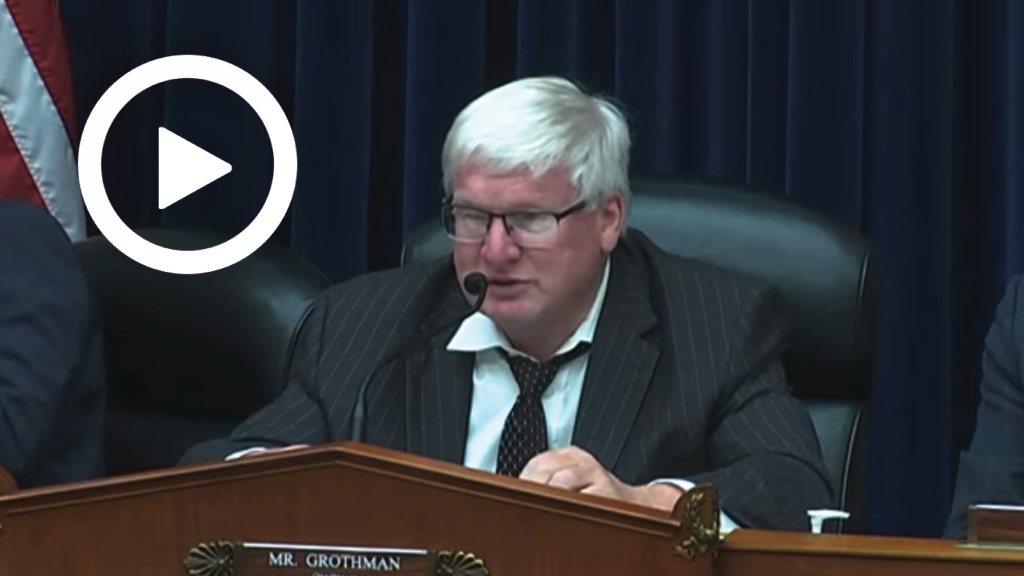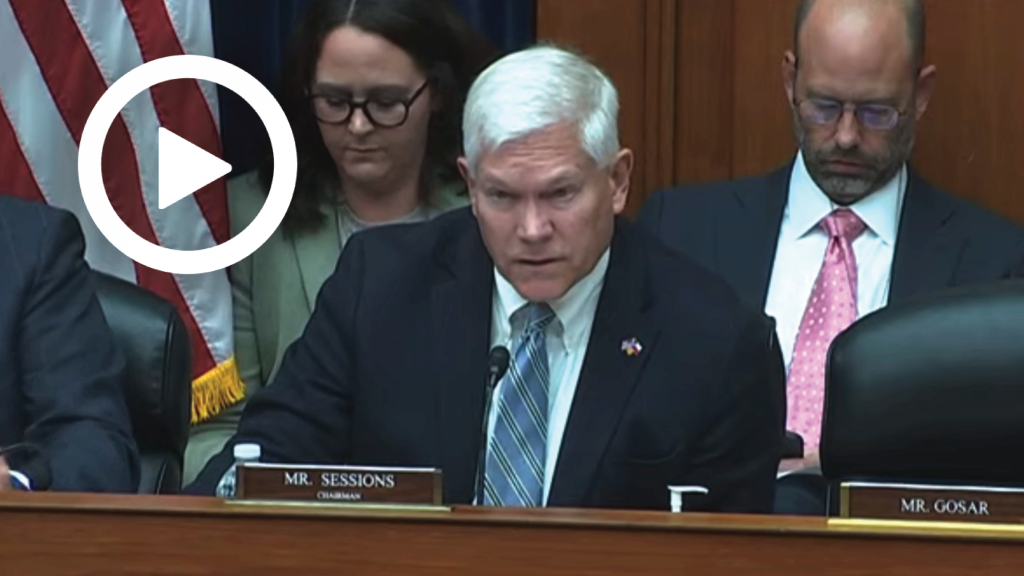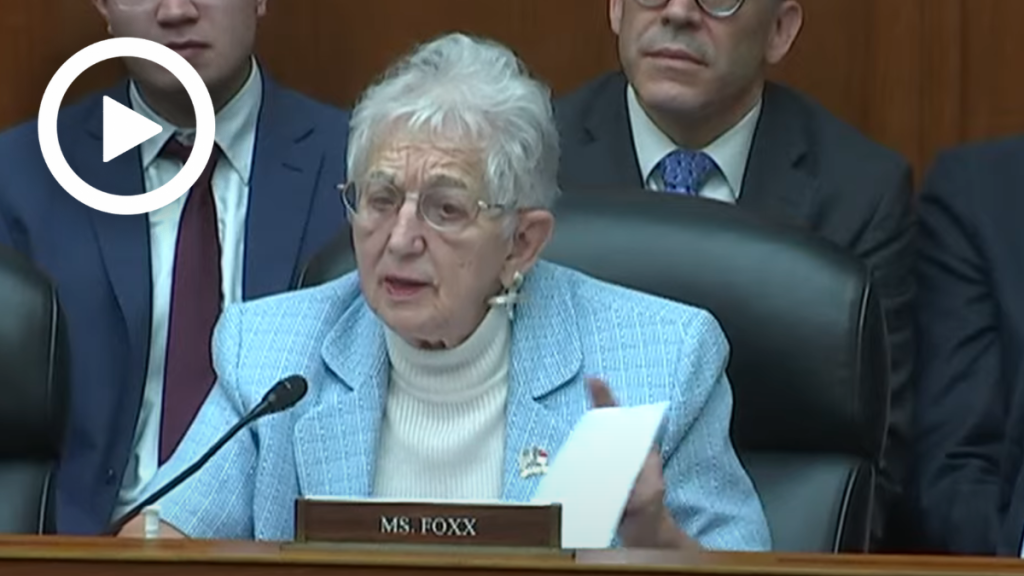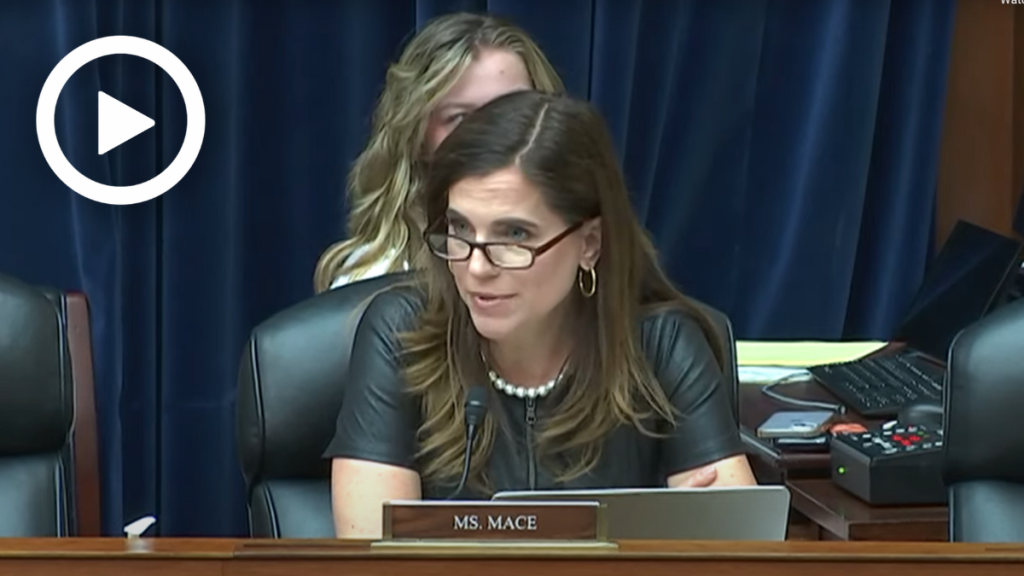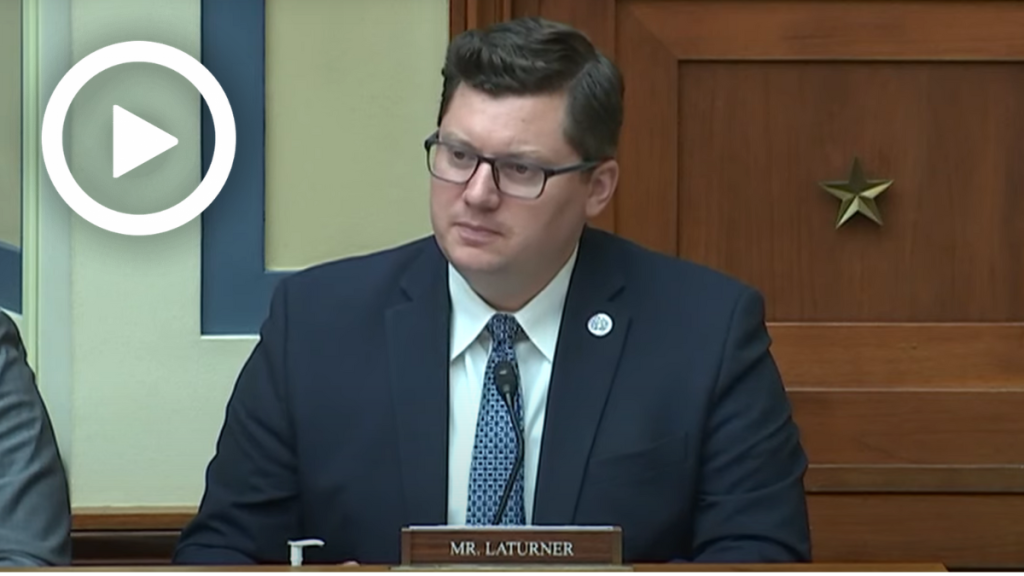Joint Hearing Wrap Up: Failed Control Systems and Inability to Accurately Account Funds is Causing DOD to Lose Billions of U.S. Taxpayer Dollars
WASHINGTON—The Subcommittee on National Security, the Border, and Foreign Affairs and the Subcommittee on Government Operations and the Federal Workforce held a joint hearing titled, “Beyond the Budget: Addressing Financial Accountability in the Department of Defense.” Members discussed with officials from the Department of Defense (DOD) and the U.S Government Accountability Office (GAO) the causes of pervasive financial mismanagement currently occurring at the DOD. Subcommittee members called for fiscal accountability and information on why current system controls designed to safeguard funds are failing, and what actions DOD is implementing to rein in the rampant waste, fraud, and abuse.
Key Takeaways:
Widespread waste, fraud, and abuse of U.S. taxpayer dollars is taking place within the DOD as recently evidenced by their fifth consecutive failed audit. The DOD Comptroller General found that the department couldn’t account for 61 percent of assets in addition to admitting sending an extra $6.2 billion in funding to Ukraine.
- Brett Mansfield— Deputy Inspector General for Audits at the Department of Defense Office of the Inspector General (OIG)—broke down the alarming findings from the most recent DOD financial audit: “During the most recent audit, the DOD OIG identified 28 material witnesses at the DOD agency wide level. Of those 28 material witnesses, we consider 16 to be scope limiting, meaning that they prevent auditors from performing the necessary procedures and steps to draw a conclusion on the financial statements and the supporting information…these examples individually and collectively erode the confidence of the American public regarding the DOD’s ability to manage taxpayer’s dollars.”
Over 300 legacy control systems currently in place within the DOD are failing in their mission and personnel who operate these systems are struggling to run them properly. These critical flaws work in tandem to make accurate reporting of financials more difficult and lead to further waste of U.S. taxpayer dollars.
- John Tenaglia—Principal Director of Defense Pricing and Contracting within DOD—admitted that systems within the DOD are outdated: “The standard procurement system needs to be retired, it is a legacy system.”
- Asif Khan—Director of Financial Management and Assurance at the U.S. GAO—testified that his investigations have shockingly been unable to find “any system within DOD that works as intended.”
The inability of DOD to pass a clean audit and have properly functioning control systems in place erodes public trust. DOD must institute effective controls to steward taxpayer funding effectively and efficiently to ensure our national security forces are ready and able to defend U.S. interests.
- Asif Khan explained the critical need for DOD to efficiently utilize funds: “The Department of Defense’s role in national security is paramount. The spacecraft represents the DOD and the spacecraft’s fuel signifies the Department’s resources such as personal, taxpayer dollars, and equipment. Every bit of fuel is vital for the mission success and every dollar dropped should be used optimally.”
Member Highlights:
Subcommittee on National Security, the Border, and Foreign Affairs Chairman Rep. Glenn Grothman (R-Wis.) examined the costly F-35 program which has been unable to hit mission critical goals.
Rep. Grothman: “Why has the F-35 program not been able to produce a clean audit and what problems have your agencies identified that have prevented and accurate accounting of the F-35 program?”
Mr. Khan: “The joint strike fighter or the joint strike fighter [F-35] program and the property held by the contractors have two scope limiting material weaknesses that Mr. Mansfield has mentioned. The primary reason for that isn’t adequate policy and procedure and guidance given by the DOD to the contractors to be able to account for that information…it really comes down to flawed guidance given by the DOD to its own personnel and then consequently, what flowed down to the contractors.”
Subcommittee on Government Operations and the Federal Workforce Chairman Pete Sessions (R-Texas) discussed challenges faced by agencies charged with oversight of the DOD.
Rep. Sessions: “Have you identified weaknesses in your own abilities [to track DOD’s financial management]?
Mr. Mansfield: “I think to your point, are there things within the DOD that limit our ability? Absolutely. That’s why I’ve identified in my written statement as well as in our earlier issued report understanding the results of the DOD’s financial statements, what we consider to be scope-limiting material weaknesses. What that means is DOD doesn’t have appropriate systems, or controls in place, or they don’t know how to describe their processes and procedures for collecting information and reporting it out to a grain of detail for us to actually be able to test it. So we can’t do our job until the DOD does their job…”
Rep. Virginia Foxx (R-N.C.) highlighted how the over 300 legacy control systems in place at DOD are failing in their mission to safeguard taxpayer dollars and track assets.
Rep. Foxx: “I want a response on how you’re telling me that the procurement system works but we have a debacle where $500 million dollars of taxpayer dollars were wasted when you’re telling me that system works. Mr. Mansfield, very quickly, do you know of a system that works?
Mr. Mansfield: “Unfortunately what I would say is there are systems that are capable of working, the difficulty is whether or not the individuals who are using those systems are capable.”
Rep. Foxx: “Then fire them. Get rid of them. It sounds like we have a culture problem. Mr. Khan?”
Mr. Khan: “I don’t know of any system within DOD that works as intended.”
Rep. Foxx: “That is an indictment that is unbelievable. We have 345 systems and not a single one is working as designed.”
Rep. Nancy Mace (R-S.C.) blasted the DOD over their failure to implement the new travel system, which took nearly a decade to prepare, and is responsible for millions in improper payments.
Rep. Mace: “The DOD uses a 25-year-old defense travel system to book billions and billions of dollars in travel expenses every year. This legacy system wastes hundreds of millions of dollars annually due to inefficiency and over payments. They were on track to modernize this system, which would be a good thing per your comments earlier, but in May the Department abruptly cancelled a $374 million dollar contract to replace the system with a more modern version. Who is responsible for that decision?”
Mr. Tenaglia: “I believe that’s under the purview of the office of the Under Secretary for Personnel and Readiness.”
Rep. Mace: “Do you believe if you’re in charge of wasting $374 million dollars on a contract that you should keep your job, yes or no?”
Mr. Tenaglia: “I would not characterize that as waste.”
Rep. Mace: “The defense travel system has incurred over $965 million dollars in improper payments from fiscal year 2016 to 2018 Exactly how large will that number get if the system remains in use.”
Mr. Tenaglia: “I don’t have an answer.”
Rep. Mace: “You don’t have any answers today, okay, if you’re responsible for losing $965 million …should the person responsible for those losses lose their job, yes or no?”
Mr. Tenaglia: “I don’t know that that would be.”
Rep. Mace: “Nobody has any answers, that’s the thing. When we have these hearings, you guys come to our committee, we have specific questions and we want specific answers, we’re wasting billions of dollars every single year and no one that comes before the committee has any answers, any solutions so what are you guys doing?”
Rep. Jake LaTurner (R-Kan.) considered the disastrous ramifications both financially and reputationally of the lack of financial auditability within the DOD.
Rep. LaTurner: “How does the lack of financial auditability at the Pentagon impact its ability to effectively allocate resources, manage budgets, and make informed financial decisions?”
Mr. Khan: “It impacts it greatly. Without having adequate controls, you will not have the reliable information with which to make the decisions as to where to allocate the money and to reprioritize funding if that need arises.”
Rep. LaTurner: “This is for each of you. What are the consequences both financial and reputational of DODs failure to pass audits?”
Mr. Tenaglia: “The operational concern is one of logistics and understand where our assets are…”
Rep. LaTurner: “What about reputationally?”
Mr. Tenaglia: “Well I think we would all prefer to have the ability to say we have a clean audit.”
Rep. LaTurner: “I hope it’s more than just a preference. Trust in government is at an all-time low in this country and it’s because people across the country, our constituents, don’t feel like they can trust government to do what they say they are going to do. I hope you care about DOD’s reputation.”
CLICK HERE to watch the hearing.
